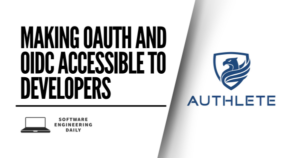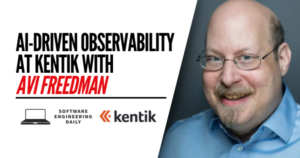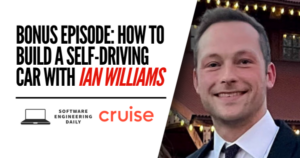Observability with Eduardo Silva
Podcast: Play in new window | Download
Subscribe: RSS

 There are hundreds of observability companies out there, and many ways to think about observability, such as application performance monitoring, server monitoring, and tracing. In a production application, multiple tools are often needed to get proper visibility on the application. This creates some challenges. Applications can produce lots of different observatory observability data, but how should the data be routed to the various downstream tools? In addition, how can data be selectively sent to different storage tiers to minimize costs?
There are hundreds of observability companies out there, and many ways to think about observability, such as application performance monitoring, server monitoring, and tracing. In a production application, multiple tools are often needed to get proper visibility on the application. This creates some challenges. Applications can produce lots of different observatory observability data, but how should the data be routed to the various downstream tools? In addition, how can data be selectively sent to different storage tiers to minimize costs?
 This episode is hosted by Lee Atchison. Lee Atchison is a software architect, author, and thought leader on cloud computing and application modernization. His best-selling book, Architecting for Scale (O’Reilly Media), is an essential resource for technical teams looking to maintain high availability and manage risk in their cloud environments.
This episode is hosted by Lee Atchison. Lee Atchison is a software architect, author, and thought leader on cloud computing and application modernization. His best-selling book, Architecting for Scale (O’Reilly Media), is an essential resource for technical teams looking to maintain high availability and manage risk in their cloud environments.Sponsors
There’s so much going on in the data and machine learning/AI space, it’s hard to keep up. Did you know that graph technology lets you connect the dots across your data and ground your LLM in actual knowledge? To learn about this new approach, don’t miss NODES on October 26. At this free online conference, top developers and data scientists from around the world share how they use graph technology for everything from building intelligent apps and APIs to enhancing machine learning and improving data visualizations. There are 90 inspiring talks over 24 hours, so no matter where you are, you can attend live sessions. To register for this free learning opportunity, visit
Neo4j.com/NODES.
WorkOS is a developer platform to make your app enterprise-ready. With a few simple APIs, you can immediately add common enterprise features like Single Sign-On, SAML, SCIM user provisioning, and more. Developers will find beautiful docs and SDKs that make integration a breeze. WorkOS is kind of like “Stripe for enterprise features.” WorkOS powers apps like Webflow, Hopin, Vercel, and more than 100 others. The platform is rock solid, fully SOC-2 compliant, and ready for even the largest enterprise environments. So what are you waiting for? Integrate WorkOS today and make your app enterprise-ready. To learn more and get started, go to softwareengineeringdaily.com/workos





















